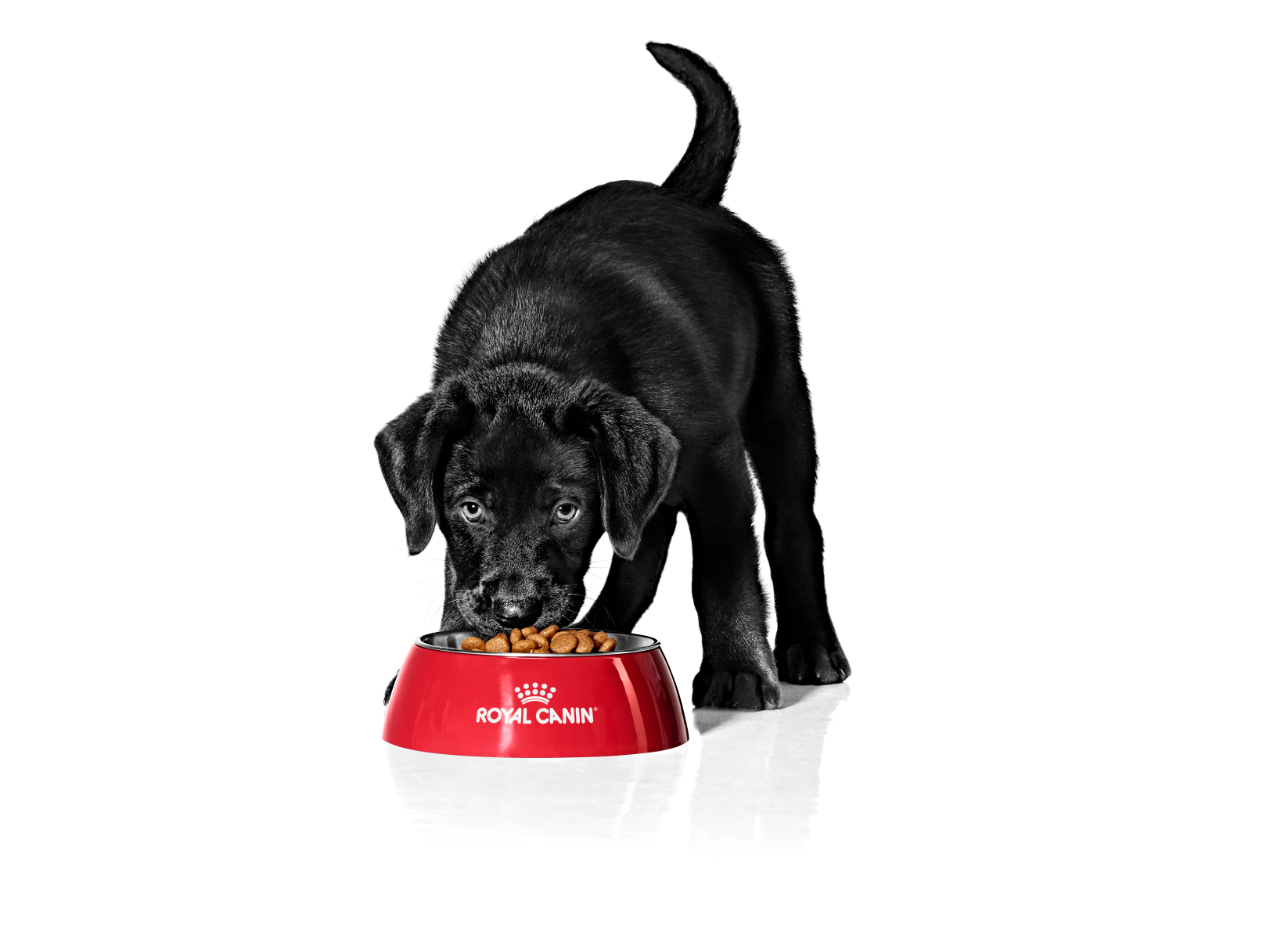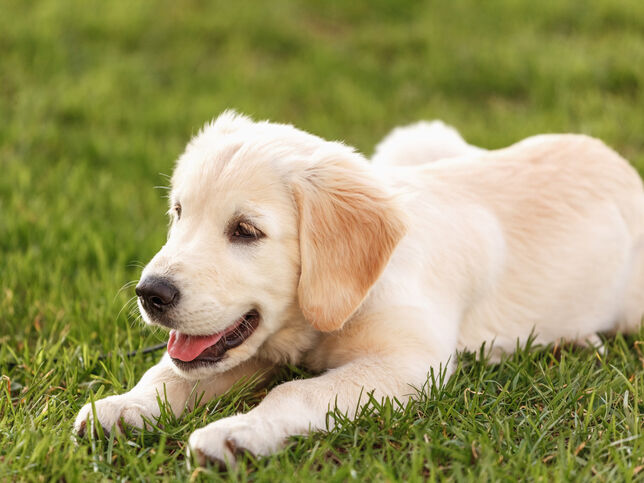Why is your puppy not eating?
Missing one meal isn't usually an issue, but puppies shouldn't go more than 12 hours without eating¹. This can cause low blood sugar, especially in small breeds like Pomeranians or Maltese due to their faster metabolism. Every dog is different, but if your puppy has walked past their food bowl for the second time, a trip to the veterinarian might be in order.
So, what are normal feeding habits, and how can you develop healthy eating habits in your puppy?
Article
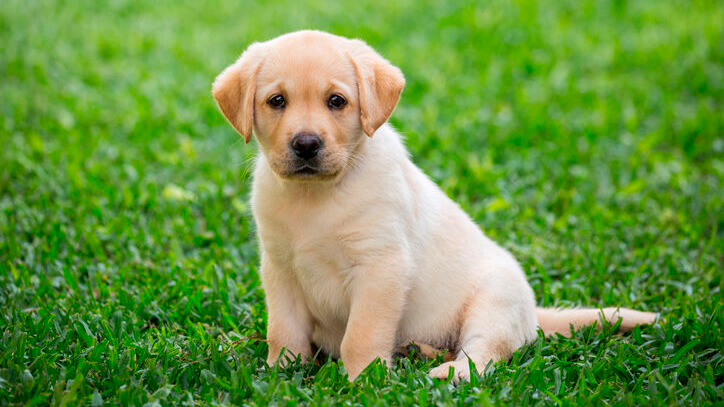
Your puppy’s feeding habits
Feeding your puppy on a consistent schedule with nutritionally balanced food helps ensure your puppy receives the proper nutrition for healthy growth.
Reasons your puppy may not want to eat
Puppies should eat a meal several times daily. When they ignore food for 12 hours, it's time to see the vet to rule out health issues. If everything checks out, here are some common reasons your puppy may not be eating.
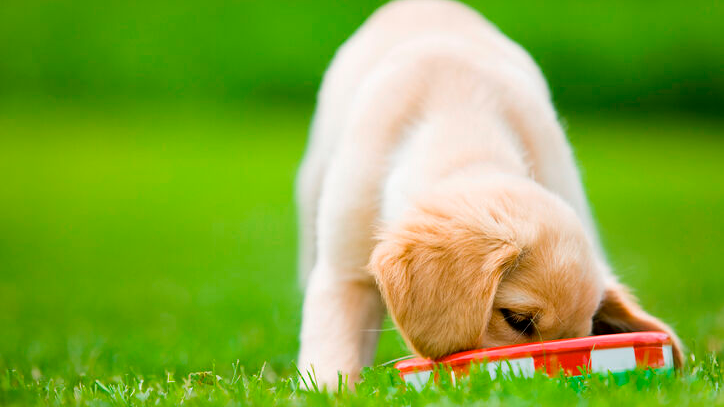
Your puppy may be a picky eater
Some puppies, especially Labradors, are very curious eaters, while others can be pickier. If your puppy isn't eating, ask yourself a few questions:
- Is your puppy more interested in treats than their regular food?
- Does your puppy constantly beg for human food or get too many treats?
- Is your puppy teething?
Here's a suggested schedule for transitioning to new food over 10 days:
Days 1 - 3: 75% current food, 25% new food
Days 4 - 6: 50% current food, 50% new food
Days 7 - 9: 25% current food, 75% new food
Day 10: 100% new food
Watch out for any signs of stomach issues during the transition. If there are any problems, go back a step and increase the transition time between steps.
During training, only offer treats from your puppy's daily food rations. This helps them understand when to expect treats. Avoid giving them human food, as it can lead to refusal of their own food and potential health issues.
Food transition schedule
Your puppy may be teething
To ease your puppy's teething pain, offer different textures and types of chew toys. Edible chews or toys made for puppies that have been refrigerated can soothe sore gums as well.
Your puppy may have anxiety or stress
When your puppy joins your family, they might feel stressed due to leaving their littermates and mother. This stress can affect their appetite and behavior. Watch for signs like panting, shaking, or unusual behavior such as soiling indoors.
To help your puppy adjust:
- Exercise them about an hour before mealtime to calm them and boost their appetite.
- Change their eating spot to a quiet area away from noise and other pets, which can ease their anxiety. Some puppies feel safer eating in their crates.
If you're worried about your puppy's stress, consult your vet for advice on making their transition smoother.
Your puppy's appetite may be affected by weather
Dogs tend to prefer lighter meals in hot weather compared to colder months because they need less energy when it's warm². This change in appetite is usually temporary and resolves when the weather cools down.
To help your puppy during hot weather:
- Offer meals during the cooler parts of the day.
- Make sure your puppy stays hydrated, as dehydration can make them very sick.
Your puppy may be overfed
If you give your puppy too many treats or overfeed them, they might not be hungry during mealtime.
To encourage a healthy eating routine:
- Stick to regular mealtimes and avoid leaving food out all day.
- Give your puppy 20 minutes to eat during mealtime, then remove any leftover food. This helps them learn to eat at set times and regulates their bathroom schedule.
- Follow the feeding guidelines on the food package and consult your vet if you're unsure how much to feed your puppy.
- Treats should be occasional and subtracted from your puppy's daily food allowance until their eating habits stabilize.
Your puppy may be too young for solid food
Puppies under six weeks may not be entirely on solid food yet. Ideally, they should still be with their mother. If you are raising orphan puppies, talk to your vet about their health and nutritional needs as you wean them to solid foods.
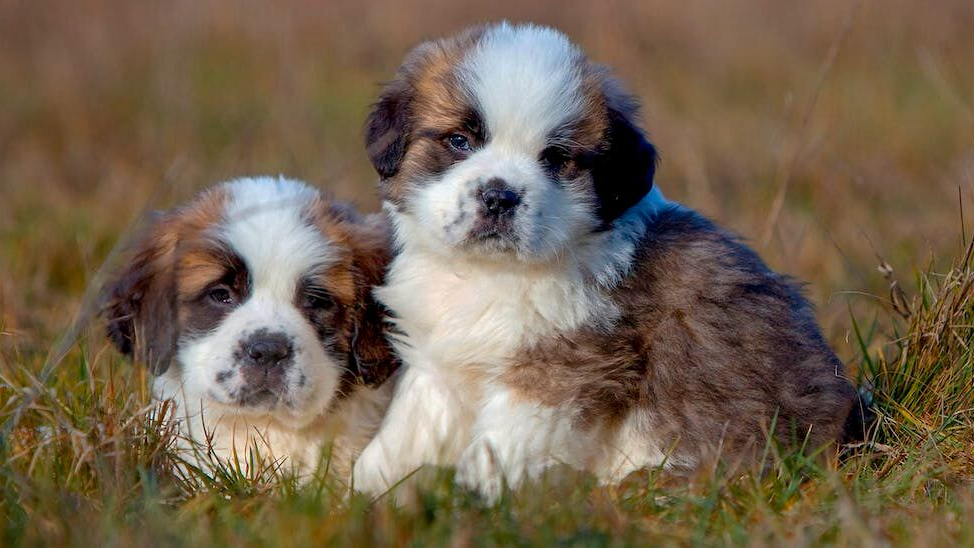
When to seek medical advice if your puppy is not eating
You should visit your vet straight away if your puppy hasn't eaten in 12 hours or shows signs like:
- Diarrhea
- Vomiting
- Decreased energy
- Blood in their stool or vomit
This is also the case if other puppies from the litter are sick.
Additionally, if your puppy has eaten something inappropriate, or shows abnormal behavior like weakness or seizures, especially in small or toy breeds that are prone to hypoglycemia, it's crucial to seek veterinary help.
While puppies may reject food for various reasons, if you're concerned, it's best to have them checked by a vet.
As you can see, puppies may reject their food for many reasons. It’s not always a big deal. But if you feel like something’s awry, call your vet and have your puppy checked out.
Related articles
Sources
- https://sagepetcare.ca/blog/why-do-dogs-eat-less-in-the-summer#:~:text=As%20temperatures%20rise%2C%20your%20dog's,their%20health%20and%20energy%20levels.
- https://www.bestforpets.net.au/blog/keeping-your-dogs-weight-healthy-through-the-winte/
- https://www.researchgate.net/publication/40690092_Energy_metabolism_of_Inuit_sled_dogs
- https://tails.com/blog/2020/08/07/why-is-my-puppy-not-eating/
- https://www.akc.org/expert-advice/health/why-wont-my-dog-eat/
Like & share this page
